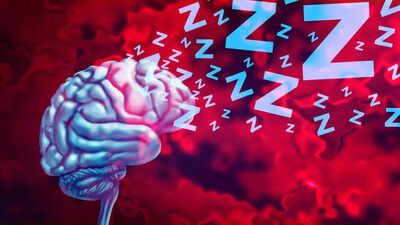ARTICLE AD BOX

Your Brain Is Running a Nightly Service While You Sleep: 6 Things You Must Do
Sleep used to be something we simply did: lights out, eyes closed, blink and we trusted our body to reboot overnight but new neuroscience shows that sleep is an active, carefully choreographed process in which brain regions, blood flow and even brain-cleaning fluids change in step.
In short, your brain does not so much turn off as shift gears and knowing how it works helps you sleep smarter, think clearer and feel better.
The surprising truth: Parts of your brain stay awake during deep sleep
You have probably had vivid dreams in the middle of the night and wondered why. Neuroscience shows dreaming and localised wake-like activity can occur even during deep (NREM) stages. In other words, some brain regions keep working while others shut down. It is more like a patchwork of states than a single “on/off” switch.
7 Daily habits to follow every night for a sharper brain
This explains why poor or fragmented sleep robs you of mental reset, not just rest. As one 2025 review in Nature Communications explained, “dreams … also happen during deeper and calmer NREM stages … in these cases, brain activity resembles wakefulness more than deep sleep, as if the brain were ‘partially awake’.” Evidence from a 2018 high-density EEG study in Journal of Neuroscience found that dreaming in non-rapid eye movement sleep occurs when slow waves are sparse, small and shallow.
The brain’s night shift: Blood flow, energy use and a flush of cleaning fluid
Newer imaging that combines EEG, PET and MRI shows how the brain reorganises as you fall asleep. As per a recent 2025 report in Quanta Magazine, “The flow of blood to the brain slows down and the circulation of cerebrospinal fluid speeds up.
Neurons release neurotransmitters that shift the brain’s chemistry and they start to behave differently, firing more in sync with one another.” Another study, Dreaming and the brain: from phenomenology to neurophysiology, noted in 2011, “Neural slow waves are followed by hemodynamic oscillations, which in turn are coupled to CSF flow.” Simplified, the brain reduces its thinking load, keeps guard areas alert and ramps up its cleaning/reset functions.
Why this matters to everyday life
If your sleep is fragmented or chaotic, your brain never completes its full transition from wake to sleep and you lose more than just rest, you lose cleanup and reset time.
Waking groggy often means that your brain never completed the upward transition from sleep to wake; the shift mechanics matter. Little habits like late-night screens, irregular schedules, stress, caffeinated evenings interfere with how smoothly your brain makes those shifts.
6 practical moves that actually help your brain finish its night work
- Prioritise a consistent sleep schedule - Regular timing allows your brain’s transitions to become smoother — fewer “stuck states” between wake and sleep.
- Wind down an hour before bed with reduced stimulation - Given how the brain reorganises its mode, the smoother the downshift the better.
- Sleep in a cool, dark, quiet room because the brain’s fluid and energy resets are easier when external disturbance is minimal.
- Prioritise physical movement earlier in the day (not heavy exercise right before sleep). Exercise builds up sleep pressure and supports healthier brain-wave transitions.
- Treat napping smartly - Shorter naps refresh without fragmenting the architecture of night sleep — long or late naps can interrupt deep (NREM) brain states.
- On waking, use light and gentle movement - This helps signal to your brain’s “boot-up” system that it’s transitioning, instead of staying semi-sleep-stuck.
Final takeaway
Sleep is not just “turning off the body”; it is a complex, active process where your brain changes chemistry, cleans itself and shifts between states.
The better you can smooth the downward journey into sleep and the upward journey into wake-time, the more you will capture those hidden benefits of sharper thinking, better mood, stronger memory and better long-term brain health.If lately you have been waking up groggy, stressed and unfocused, maybe it is time to treat your sleep like the brain-service session it truly is because your brain never fully rests but it does reset.
Sleep is not a passive black box; it is a running, state-shifting service that your brain performs nightly by quieting thinking centers, keeping guard regions responsive and flushing metabolic waste.Little habits like consistent schedule, screen curfew, cool/dark room and daytime movement, make a big difference because they let your brain complete that service. Treat sleep like a performance your brain puts on every night and give it the stage it needs.Note: The information provided in this article is for educational purposes only and is not intended as medical advice. Always consult with a healthcare professional before starting any new medication or treatment.

 10 hours ago
5
10 hours ago
5









 English (US) ·
English (US) ·